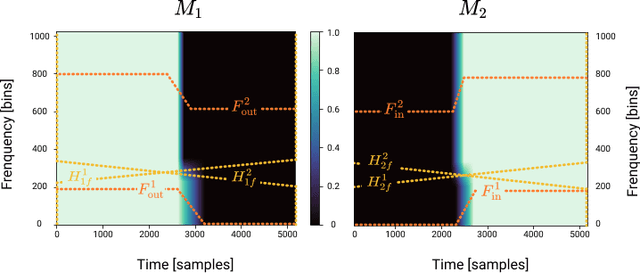Automatic DJ Transitions with Differentiable Audio Effects and Generative Adversarial Networks
Paper and Code
Oct 13, 2021



A central task of a Disc Jockey (DJ) is to create a mixset of mu-sic with seamless transitions between adjacent tracks. In this paper, we explore a data-driven approach that uses a generative adversarial network to create the song transition by learning from real-world DJ mixes. In particular, the generator of the model uses two differentiable digital signal processing components, an equalizer (EQ) and a fader, to mix two tracks selected by a data generation pipeline. The generator has to set the parameters of the EQs and fader in such away that the resulting mix resembles real mixes created by humanDJ, as judged by the discriminator counterpart. Result of a listening test shows that the model can achieve competitive results compared with a number of baselines.
 Add to Chrome
Add to Chrome Add to Firefox
Add to Firefox Add to Edge
Add to Edge